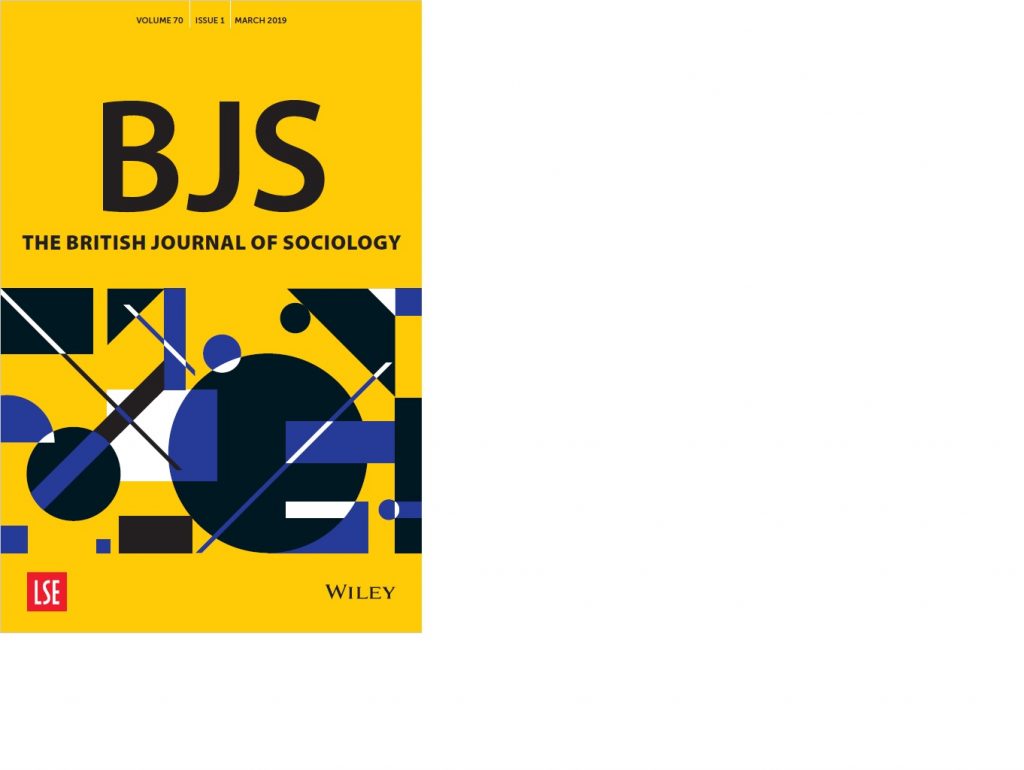A Brief Examination of Neoliberalism and Its Consequences in sociology

Starting in the second half of the 20th century, neoliberalism became increasingly prominent as a form of governance in countries around the world (Peters 2001). Originally, the roots of neoliberalism were planted by a classical political economy theory which advocated for markets (and thus people) to be completely liberated from any type of governmental interference (Smith 2009). “Free” competition and “free” enterprise were promoted as manners in which economies should be allowed to grow. Martinez and García (2000) contend that this “liberal” type of economic theory began to be adopted in the West throughout the 1800s and into the early part of the 1900s.
The Great Depression of the 1930s and the development of Keynesian economics, though, temporarily slowed down the advancement of liberal economics. In recent decades, however, economic liberalism (or, neoliberalism) has seen a revival on a truly global level as countries around the world now either choose or are forced to engage in neoliberal governance. As a result of the growing hegemonic prominence of neoliberalism, there have been vast changes at the national-level, the international-level, and the individual-level.
Neoliberalism at the national level
At the national-level, neoliberal ideas have drastically changed how states operate. By heavily promoting market-based economies that highly value competition and efficiency, neoliberalism has moved countries closer to adopting social Darwinism. Under Thatcher and Reagan, for instance, Peters (2001) argues that neoliberalism directly led to the economic liberalization/rationalization of the state, the restructuring of state sectors, and the dismantling of the welfare state. As a consequence of these changes, the U.S. and the U.K. have seen things like the abolishment of subsidies and tariffs, the corporatization and privatization of state trading departments, a sustained attack on unions, and the individualization of health, welfare, and education.
Although the idea that markets should fully dictate governments would have seemed ludicrous in prior decades (George 1999), Bourdieu (1999b) contends that neoliberalism as a form of national governance has become a doxa, or an unquestioned and simply accepted worldview. Harvey (2005) is thus not surprised that the ideas of capitalism have been infused into political, social, and cultural institutions at the state-level. By placing a mathematical quality on social life (Bourdieu 1999a), neoliberalism has encouraged formerly autonomous states to regress into penal states that value production, competition, and profit above all else, including social issues.
Neoliberalism at the international level
At the international-level, George (1999) argues that neoliberals have focused on three primary points: free trade in goods and services, free circulation of capital, and freedom of investments. Thus, neoliberal globalization means that there has been an emphasis placed on exchanges across national borders, financialization, and the development of international organizations as well as a transnational civil society (Bandelj, Shorette, and Sowers 2011).
With the help of the International Monetary Fund and the World Trade Organization, George contends that advocates of neoliberalism have essentially forced many countries to accept this framework. Such acceptance means that more states are now tacitly agreeing to promote the rule of the market, severely cut public expenditures, reduce governmental regulation, and embrace the concept of individuality even if this means casting millions (if not billions) of people aside and regarding them as “losers” in a zero-sum game (Martinez and García 2000). By adopting such an economic worldview, George warns that it is likely that the North-South gap and global inequality are likely to become more exaggerated in the years to come. Because neoliberalism leads to the globalization of financial markets (Bourdieu 1999a), it can further be expected that economic crises—built on the backs of short-sided neoliberal policies—will become more common and catastrophic.
Neoliberalism at the individual level
At the individual-level, neoliberalism insists that rationality, individuality, and self-interest guide all actions (Peters 2001). In fact, neoliberalism often views itself as a global social science capable of explaining all human behavior since all behavior is thought to be directed by logical, individualistic, and selfish goals. Neoliberalism’s focus on the individual means that ideas related to things such as “the public good” and “the community” are now being discarded as unnecessary components of a welfare state (Martinez and García 2000). Unsurprisingly, then, unemployment, inequality, and poverty have become increasingly blamed on individuals rather than on structural constraints (Passas 2000).
Because we are turning away from the role of the community and instead focusing solely on individuals, Bourdieu (1999a) contends that social problems like suicide, alcoholism, depression, and domestic violence will consequently become increasingly prominent. Still, the outward attractiveness of individual freedom, prosperity, and growth makes it challenging for the public to realize that neoliberalism is designed to benefit only a very small class of people (Harvey 2005). Such a worldview also makes it easier to justify the thought that some people are deserving of much more than others because, after all, it is a common refrain that we are all responsible for our own destinies.
Summary
As this brief description of neoliberalism and its repercussions show, this ideology has led to many changes at the state-level, the international-level, and the individual-level. Such changes include the dismantling of the welfare state, the growing reality of global inequality, and the individualization of all actions.
In spite of such negative outcomes, George (1999) argues that the hegemonic nature of neoliberalism makes it seem like the only possible economic and social order available. As a true doxa, neoliberalism has become an unquestioned reality as it now seems almost logical that the markets should be the allocators of resources, that competition should be the primary driver of innovation, and that societies should be composed of individuals primarily motivated by economic conditions (Coburn 2000). Against the onslaught of neoliberal ideals, some scholars such as Bourdieu and Harvey have argued that the populace must rise up and resist this ideology. With the effectiveness with which neoliberals have pushed forward their ideas, though, such an uprising seems unlikely at least in the near future.
Further Reading:
Harvey, David. 2007. A Brief History of Neoliberalism. New York: Oxford University Press.
Smith, Adam. 2009. The Wealth of Nations. Blacksburg, VA: Thrifty Books.





1728-4457/asset/PopulationCouncilLogo.jpg?v=1&s=03074651676b98d6b9d0ef1234bd48fe7ff937c3)
This is a great article covering a huge terrain in a short space. I will add a few points. The neoliberal ideology is based on neoclassical economics and game theory both lack scientific foundations. See http://williampaulbell.wordpress.com/2009/08/29/the-g8-protests-and-the-logically-inconsistent-foundations-of-neoclassical-economics/ and http://williampaulbell.wordpress.com/2012/09/17/progressing-from-game-theory-to-agent-based-modelling-to-simulate-social-emergence/. The US being at the forefront to promulgate the neoliberal ideology has suffered a decline in numerous quality of life indicators relative to most OECD countries (except for the top 1% of course), see Decline of the US by Edward Fullbrook http://www.paecon.net/RWEBooks/USA/USA1.pdf. A sample preview of his work can be found at http://rwer.wordpress.com/2012/08/29/for-share-of-income-received-by-richest-10-the-usa-ranks-26th-out-of-28/.
One of the dynamics keeping the neoliberal ideology in place are the economics department around the world, more and more staffed by US PhD graduates. These economics departments are at the forefront of perpetuating the no-libertarian ideology and keeping alive ideas that have been proven incorrect. See Zombie economics by Professor Quggin http://press.princeton.edu/titles/9270.html. The World Economics Association (http://www.worldeconomicsassociation.org/) fills a huge gap in the international community of economists — the absence of a professional organization which is truly international and pluralist. Joining this organisation can help resort some balance in the intellectual discourse. A detailed criticism of both neoclassical economics and game theory can be found at (http://econpapers.repec.org/paper/pramprapa/38260.htm). This criticism also introduces one alternative approach to in modelling in economics.
Thank you for you comments. I’m working on a paper related to the relationship between neoliberalism and interpersonal violence, so I really appreciate your feedback.
Unfortunately, neoliberalism has many maladies. The following is a documentary you might like to view on the link between paranoia and neoliberalism.
“The Trap: What Happened to Our Dream of Freedom”
The video is on YouTube.
@ Candace Smith, Excellent articles.
William Paul Bell well thought out comments and beneficial links on both articles.
Thank you!
Candace, thank you for this excellent article.
I am particularly interested in how the neo-liberal ideology has distorted how we view nature.
Newspeak, George Orwell’s imaginary language, made it easy to express the world-view of the ruling elite, but difficult to express rival world-views. In a similar way, today’s political, economic and scientific elites have adopted a language that makes it easy to express the world-view of neo-liberal economics, but difficult to express any other way of seeing the world.
With that language comes sets of concepts. When dealing with the conservation of nature these concepts include such inventions as: biodiversity credits, offsets and values; bio-, habitat-, mitigation- and wetland-banking; conservation marketing; ecosystem services; financial incentives; green growth and green infrastructure; natural capital and resources; nature-based solutions; no net loss and non-monetary benefits. Buried beneath that un-natural heap of neo-liberal Newspeak is nature itself.
Neo libralism has been a concept that delved into free trade and market systems in the global perspective,which has been imbibed by entrepreneurs inorder to have competitive advantage over their competitors.